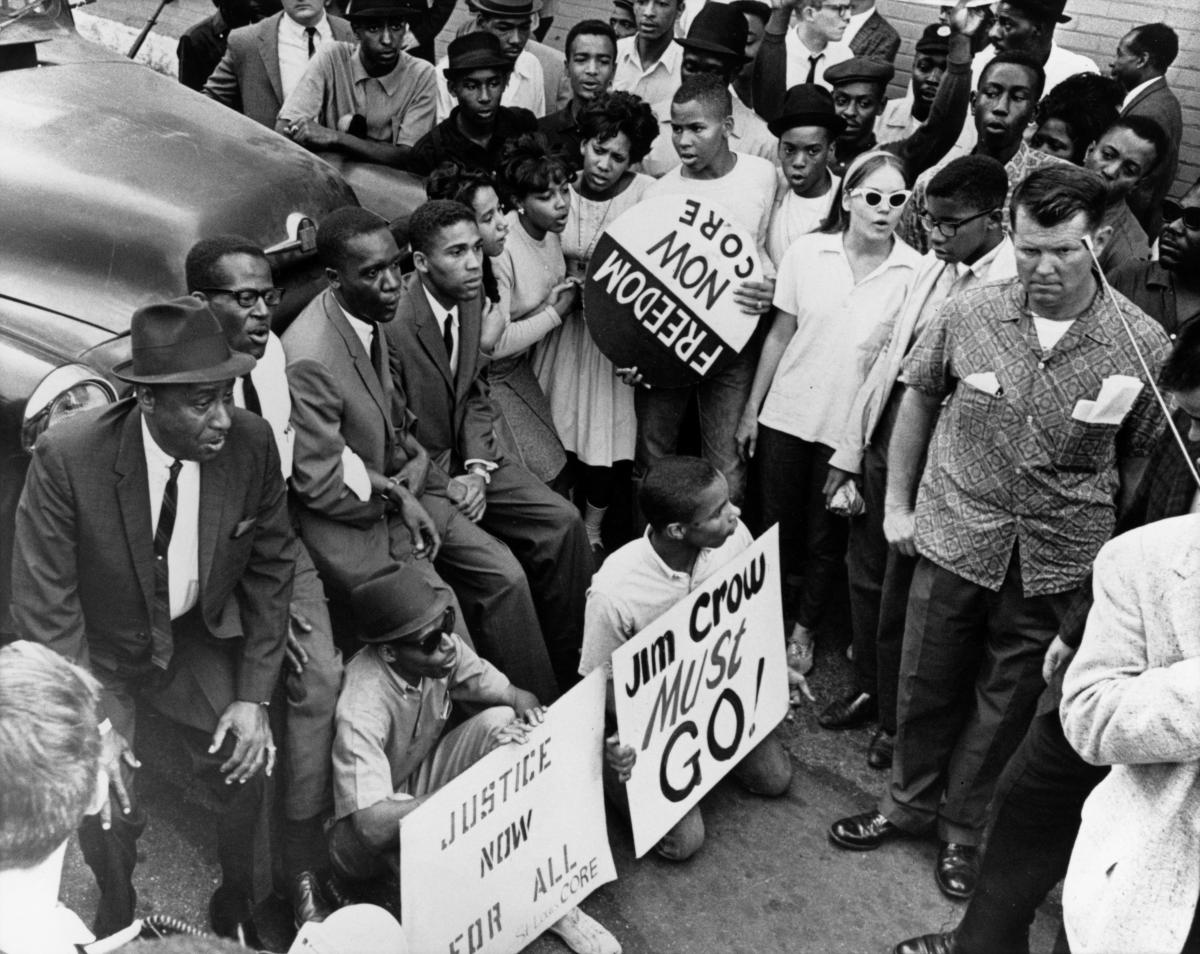JAMES is a stencil font family inspired by signs carried during one of the demonstrations that led to Title VII of the Civil Rights Act.
Committed to racial harmony, Farmer, his friend George Houser and a multi-racial group of colleagues decided that they would desegregate a Chicago eatery via a 1942 sit-in. They thus formed the Committee of Racial Equality, with the name later becoming the Congress of Racial Equality. With Farmer elected national chairman, CORE developed a mostly white North-based membership with various chapters, yet would eventually find itself becoming deeply involved in the South.*
No.1 — Photo by Warren K. Leffler
The protests against unequal hiring practices at Jefferson Bank and Trust, which lasted for seven months, mark the largest—and most contentious—civil rights struggle in the history of St. Louis.
The protest was conceived by members of the Committee of Racial Equality. CORE leaders had been eager to stage a demonstration against the racist hiring practices in St Louis at a time when few African Americans worked in white-collar jobs. For example, out of the 5,133 workers in 16 local banks, just 277 were black, and 99 percent of these black workers had menial jobs. *
CORE sent a letter to the Jefferson Bank and Trust Company, urging the financial institution's leadership to hire four black employees in clerical positions. It received a reply insisting that there were not “four blacks in the city” fit for such jobs. This answer spurred CORE into selecting Jefferson Bank and Trust as the location of its protest. The bank quickly filed for a restraining order to prevent protesters from disrupting business. The order was quickly granted—and even named several prominent members of CORE.
By November 1 the St. Louis Argus, another African American newspaper, noted that Jefferson Bank had hired one black person—a “promotable” messenger. However, it wasn't until March 1964 that Jefferson Bank gave in and hired four African Americans to clerical positions, bringing the protests to an end. *




